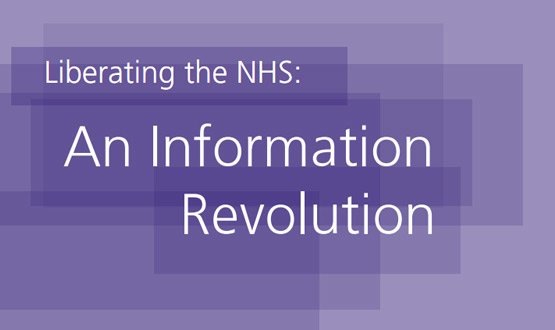Power to the people?
- 7 December 2010

A flurry of reports on the value of publishing information about NHS services may be making uncomfortable reading for officials at the Department of Health.
The reports from generally supportive think-tanks question the value of making information available to patients. Yet this is a foundation stone of the latest round of NHS reforms and one of the key proposals in the consultation on a new information strategy for the NHS.
The consultation document, ‘Liberating the NHS: an Information Revolution’, argues that information will make the NHS more transparent and enable the public to hold it to account. It also says it will be used by individual patients to make choices about their care, encouraging providers to invest in quality.
However, in a report this month, the King’s Fund said the government needed to be cautious about patients’ ability to make use of information to choose hospitals.
Then the Health Foundation weighed in with another study that argued that high quality data was unlikely to directly drive improvements in patient care.
Publication is not enough
Mark Duman, president of the Patient Information Forum, says he was “absolutely delighted” by the prominent role the government gave to patient information in its white paper, ‘Equity and Excellence: Liberating the NHS’, and in the Information Revolution consultation.
“I think it’s amazing to see it in the white paper and to see shared decision making so central to the government’s plans,” he says. “But publishing information isn’t enough.”
Duman argues that information will only have an impact if money is spent on training clinicians and patients in how to use it and if providers are given incentives to place a much bigger emphasis on the use of information.
He wants to see change driven from the top with chief consumer health information officers at board level in every trust. “I don’t feel the rhetoric of enabling and empowering patients is being lived up to at the moment,” he adds.
Indeed, the Patient Information Forum recently reported that information services are being cut by local NHS organisations, looking for easy ways to save on ‘non-essential’ services.
If you know what to publish
Even with major investment, using information to empower patients could be a long-term project, according to Professor Martin Marshall, clinical director of the Health Foundation, which is a charity set up to improve the quality of health care in the UK.
He says long-standing and international evidence points to a public that does not want to use information to shop around for the best care and that makes decisions about health and treatment on a much more complex and less objective set of criteria.
“We really don’t know why people don’t use information in the same way they do when buying a car or a washing machine,” he says.
Explanations might include a culture in which patients have been the passive recipients of care for decades and see some of the much-hyped publication of data as not relevant to them.
Professor Marshall cites a study that showed that when patients were told there was a 1.4% chance of dying of a coronary bypass graft operation in one hospital and a 2.2% chance in another hospital, the risk was judged to be small and the difference unimportant.
Rather than the risk of living or dying, he also says patients are more likely to want information on the long term impact of the operation, such as their ability to walk to a shop to get a pint of milk.
That kind of data is captured in Patient Reported Outcome Measures, and Professor Marshall says cautiously that PROMS “might be much more relevant” to patients.
Data and views
The Information Revolution consultation document makes it clear that the government wants to expand the use of PROMS. It also wants to expand patient and staff feedback and ratings sites such as Patient Opinion and iWantGreatCare.
However, it acknowledges that the level of patient and service user feedback have “not yet reached a sufficient level in most settings to start shaping and influencing services.”
Dr Paul Hodgkin, a Sheffield GP and founder of Patient Opinion, says his own experience as a GP tells him that “ill patients make lousy shoppers”, which is why ‘choice’ has failed to take off as an initiative in a big way.
The Information Revolution suggests that information “intermediaries” could offer information in innovative ways that would make sense to people, and so provide a new impetus for choice.
But Dr Hodgkin argues the time to harness the power of information is once a patient has gone through their period of care, when they should be encouraged to feedback on what the experience was like and how it might be improved.
He says the sheer scale of the task of accumulating meaningful PROMS data for every procedure in every area could make it unaffordable, so the use of PROMS might have to be more selective. Meanwhile, patient ‘stories’ of the kind collected by his site could drive improvements without the need for statistically valid sample sizes.
“No one in the world has cracked how to generate lots and lots of stories because people don’t naturally write about that stuff,” he acknowledges. “But I think we are getting closer and closer to the point at which you get lift of.”
Dr Hodgkin also argues that the government needs to start thinking harder about social media. The Information Revolution makes no mention of what he believes will be the health service’s most powerful tool for change in future.
Keep going anyway
One organisation that has pioneered publication of hospital data is Dr Foster Intelligence, However, even its head of research Roger Taylor feels that making use of data is far too difficult for the vast majority of patients at the moment.
He adds: “The problem that we are facing is that people clearly want more say over what happens to them and don’t necessarily want to do what their doctor would say; but there is nothing out there that really hits the spot and deals with the issue.”
A further concern of those analysing the impact of information on health is the fear that health inequalities could widen as those best able to access information do so, while others are left behind.
Dr Foster’s most recent Hospital Guide was published in the Observer, not in the Sun, and Duman says every meeting he attends is “run by the middle classes for the middle classes.”
He adds: “Are we really truly reaching out to people and understanding our audience in the way that we need to?”
Taylor admits that it is not a simple problem to crack, with the relationship between the clinician and the patient at the heart of it. He suggests that revalidation might be a mechanism for changing the dynamics on decision making.
Certainly, it is from the clinician-side that publication of data has had the most effect to date. Professor Marshall’s study found – as previous, international studies have also found – that while patients were unmoved by public reporting of comparative data it can sometimes still improve quality.
It’s just that the underlying mechanism is providers’ concern about their reputation, rather than actual changes in patient behaviour.
Professor Marshall explains: “It’s normally at the level of the organisation rather than the level of the individual professional. But is driven by concern about reputation and also, in the US, it is economically driven.”
Like everybody else that EHI Primary Care spoke to, Taylor argues that the government is “absolutely right to be trying to do this” – but the idea that publishing information will have a huge impact on the efficiency and quality of the NHS is premature.
Professor Marshall’s advice is fairly blunt. “I’d carry on pushing the agenda. But I’d stop pretending that patients are going to drive change, because that isn’t very helpful.”




